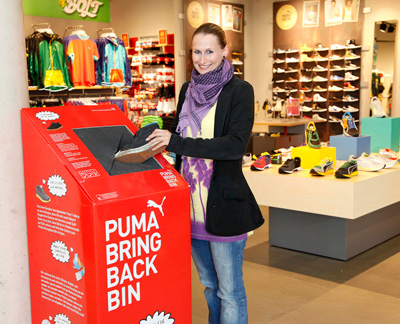
SUSTAINABILITY SPECIAL
If a brand is the relationship between a company and its customers, the store is its most intimate conversation, and the success of sustainability depends on this dialogue
«Sustainability increasingly will be seen as a strategic necessity, inspiring and managing profitable change across the retail enterprise»
This is the vision of Adam Siegel of Retail Industry Leaders Association. According to Siegel the future of retail will be based on the ability to create a new revenue stream different from the mere sale of a product, but that thinks about servicing that product (thus prolonging its life), taking it back for reuse or recycling or even sharing it (see, for example, dressyoucan.com in Italy). In an article on Rotman Magazine, Steve Bishop and Dana Cho of IDEO indicate some possible solutions to foster an increasingly sustainable retail starting from a simple question: how come that 87% of people say they are seriously concerned about sustainability and yet that does not factor in their purchasing decisions?
«Because many other factors influence shopping and the educational message on sustainability can get lost without inspiration»
explain Bishop and Cho. The goal can be reached with many different initiatives like: letting consumers recommend green products right at the shelf; making special sustainable products showcases in cooperation with famous certification agencies; rearranging the store layout, creating real sustainable areas; suggesting sustainable products at checkouts, giving the customer the chance to modify his choices; introducing a receipt that contains information on the social/environmental impact of the products purchased; reserving checkout lines and parking spaces for those who purchase green products; translating sustainable economy’s data into common experiences. Retail buildings themselves can turn into an opportunity to promote sustainability: microclimate controlled by a dynamic biosphere rather than air conditioning units; giving customers free samples of sustainable products; hosting events and workshops on sustainability; displaying the results achieved thanks to their sustainable policies on the outside.  Discarded DVDs, disused bicycles and filtered silt are some of the unconventional materials with which Puma’s first “sustainable store” was built in 2012
Discarded DVDs, disused bicycles and filtered silt are some of the unconventional materials with which Puma’s first “sustainable store” was built in 2012



